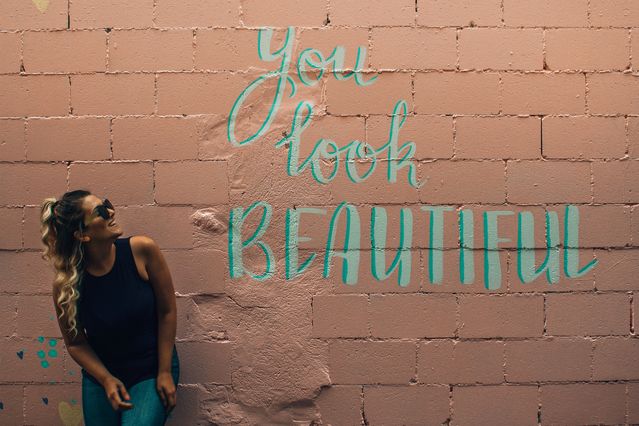Body Image
What We're Getting Wrong About "Positive Body Image"
Research findings debunk common myths about body positivity.
Posted March 23, 2019
It seems like everyone is talking about body positivity these days. There are nearly 9 million posts on Instagram with the “bodypositive” hashtag. A Google search for “body positivity” leads to over 4 million results, and analyses by Google Trends reveal a distinct uptick in the popularity of the topic over the past five years. A wide range of celebrities have joined the chorus of voices advocating for positive body image – Jameela Jamil, Aidy Bryant, Laverne Cox, Demi Lovato, Lorde, and Adele, just to name a few. Likewise, social media platforms overflow with posts exhorting women (and sometimes men) to love their bodies no matter what they look like.
Researchers have begun examining positive body image in earnest, with several hundred published studies in the past few years. While there’s no single, official definition of what it means to have a positive body image, most researchers agree that it involves viewing your body with compassion and acceptance, focusing on gratitude for what your body does instead of fixating on how it looks, and endorsing broad, inclusive beauty ideals.
But for all the talk, there’s a lot we get seriously wrong about the concept. Recent findings can help us tackle some of the popular myths about positive body image.
Myth #1: If you don’t actively hate your body, that means you’re body positive.
It’s not so simple. While it might seem confusing, a positive body image isn’t just the opposite of body negativity: The two concepts are more independent than you might guess. Not hating your body is no guarantee that you appreciate it or care for it. A positive body image means more than letting go of negative attitudes; it requires actively nurturing a gentle, accepting approach to your body. That leads directly to Myth #2...
Myth #2: Having a positive body image means you love every single thing about how your body looks, every day.

First, having a positive body image means you’re not overly concerned with how your body looks. Instead, though you likely engage in enjoyable self-care related to the body, you think of your body more broadly. You conceptualize it in terms of how it functions and how it allows you to feel pleasure and experience different types of connection with other people and the world around you. It means that when you do experience negative emotions related to your body, you respond with compassion and understanding, knowing that everyone feels that way sometimes. People who are body positive can feel dissatisfied with their body on occasion without letting that dissatisfaction derail them from other life goals. They avoid getting into a mental beauty pageant with everyone they see and focus on accepting the wide diversity of human appearance.
Myth #3: It gets harder to have a positive body image as you age.
It’s no surprise that people assume people's body image gets worse with age, especially for women. How could it not, when we’re bombarded with anti-aging advertisements and immersed in a culture that glorifies youth? Studies of women, however, have found that positive body image actually increases with age. This is likely because life experiences can teach you to appreciate and respect your body for what it does and what it’s been through – even if it doesn’t look like the kind of body admired in popular culture. In short, the wisdom that comes with age often brings the unexpected gift of greater body appreciation.
Myth #4: Getting lots of compliments on your appearance will give you a positive body image.

This sounds logical, but research has demonstrated that being on the receiving end of appearance-related compliments does not improve body image. In fact, it can make it worse. So think twice before imagining that harvesting compliments on Instagram for a sexy selfie will help you love and appreciate your body more. It doesn’t work that way, and can often backfire.
Myth #5: If you have a positive body image, you won’t be motivated to take care of your body.

A recent journal article suggested that feeling good about your body is a recipe for unhealthy weight gain. (See here for an excellent take-down of that research.) Unfortunately, there are many people who assume that you have to feel shame about your body in order to make healthy choices. This perspective is misguided and out of line with scientific findings. In fact, people who appreciate and feel gratitude toward their body are more likely to take good care of it. A recent review of research found that women with a positive body image are more likely to practice intuitive eating, use sun protection, conduct regular breast self-exams, and engage in vigorous exercise – no matter what size their body is.
----------
If you want to pursue a positive body image, focus on appreciating and caring for your body. Accept your negative body-related thoughts and feelings with compassion. And decide to take good care of your body no matter how it looks.
Facebook image: Flamingo Images/Shutterstock


